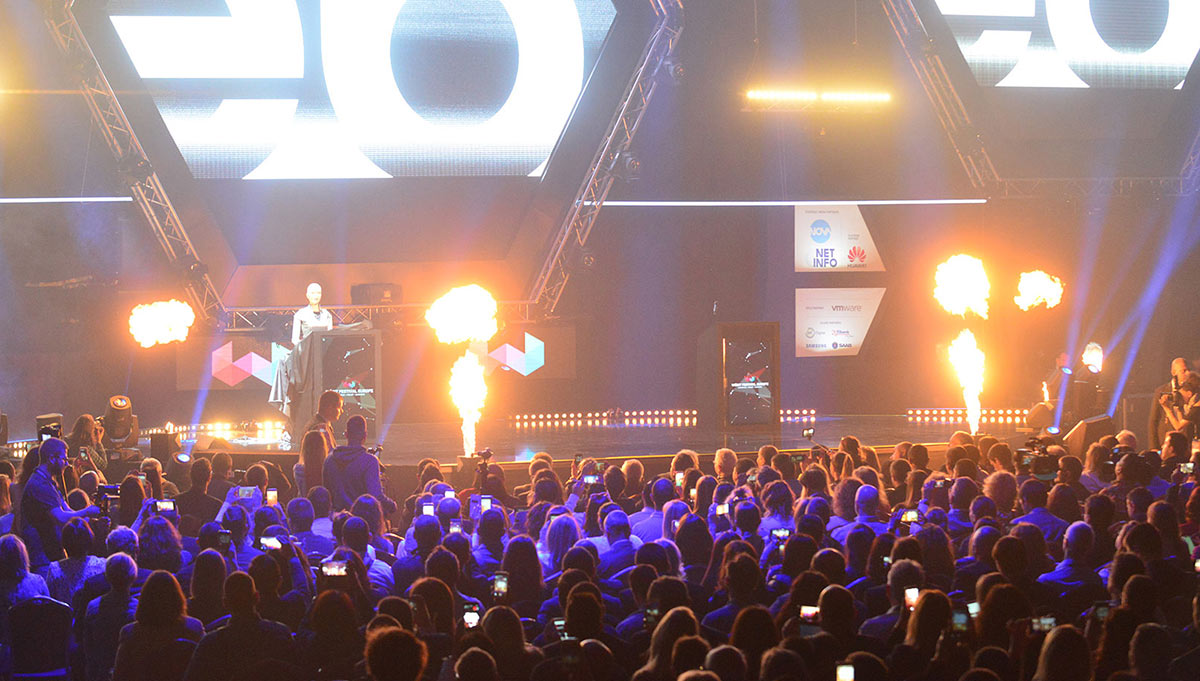Artificial intelligence (AI) has already started transforming many industries and professions, making them more efficient, accurate, and cost-effective. While some people worry that AI will replace jobs, it’s more likely that AI will change the nature of work, creating new opportunities and shifting job responsibilities.
The future of work is rapidly changing, with the rise of artificial intelligence (AI) and automation promising to transform the way we work and live. At Webit Summer edition, we’ll explore how people will share the future with AI and why it’s important to embrace this change.
AI will not replace human workers but rather augment their capabilities. AI can take over repetitive and mundane tasks, freeing up time for human workers to focus on more complex and creative tasks. For example, AI can analyze data and provide insights, while humans can interpret those insights and make decisions based on them. AI will create new opportunities for workers to learn new skills and take on more complex tasks. As AI takes over repetitive and mundane tasks, human workers will need to learn new skills such as data analysis, programming, and creative thinking. This will create new job opportunities and increase the demand for workers with these skills.It will enable humans and machines to work together in a more collaborative way. For example, AI can help humans to better understand data and make better decisions. Humans, on the other hand, can provide context, insights, and creativity that machines are not capable of.
AI will enable more personalized products and services, tailored to individual needs and preferences. For example, AI can analyze consumer data and provide personalized recommendations for products and services. This will create new opportunities for businesses to provide more personalized and customized products and services. It will increase efficiency and productivity in many industries, enabling businesses to do more with less. For example, AI can automate repetitive and mundane tasks, reducing the need for human workers to do them. This will enable businesses to focus on more complex and creative tasks, and improve overall productivity.
The future of work is rapidly changing, with the rise of artificial intelligence (AI) and automation promising to transform the way we work and live. While some people worry that AI will replace human workers, the reality is that people will share the future with AI. In this article, we’ll explore how people will share the future with AI and why it’s important to embrace this change.

- Augmented Intelligence: AI will not replace human workers but rather augment their capabilities. AI can take over repetitive and mundane tasks, freeing up time for human workers to focus on more complex and creative tasks. For example, AI can analyze data and provide insights, while humans can interpret those insights and make decisions based on them.
- New Opportunities: AI will create new opportunities for workers to learn new skills and take on more complex tasks. As AI takes over repetitive and mundane tasks, human workers will need to learn new skills such as data analysis, programming, and creative thinking. This will create new job opportunities and increase the demand for workers with these skills.
- Collaborative Work: AI will enable humans and machines to work together in a more collaborative way. For example, AI can help humans to better understand data and make better decisions. Humans, on the other hand, can provide context, insights, and creativity that machines are not capable of.
- Personalization: AI will enable more personalized products and services, tailored to individual needs and preferences. For example, AI can analyze consumer data and provide personalized recommendations for products and services. This will create new opportunities for businesses to provide more personalized and customized products and services.
- Increased Efficiency: AI will increase efficiency and productivity in many industries, enabling businesses to do more with less. For example, AI can automate repetitive and mundane tasks, reducing the need for human workers to do them. This will enable businesses to focus on more complex and creative tasks, and improve overall productivity.
- Ethical considerations: As AI becomes more integrated into our daily lives, it is important to consider the ethical implications. For example, how can we ensure that AI is used in a way that is fair and does not perpetuate biases? How can we ensure that AI is used in a way that benefits society as a whole? These are important questions that we need to address as we continue to develop and use AI.
Ethical considerations? As AI becomes more integrated into our daily lives, it is important to consider the ethical implications. For example, how can we ensure that AI is used in a way that is fair and does not perpetuate biases? How can we ensure that AI is used in a way that benefits society as a whole? These are important questions that we need to address as we continue to develop and use AI.
The future will be shared between people and AI. While AI will transform the way we work, it will not replace human workers. Instead, AI will augment human capabilities, create new job opportunities, enable more personalized products and services, and increase efficiency and productivity. It’s important to embrace this change and prepare for the future of work by learning new skills, being open to new opportunities, and collaborating with machines to achieve our goals. Together, humans and AI can create a better future for all.

Sophia, the Robot during Webit.Festival Europe 2018
Join the discussion and learn from global leaders in the industry on 28th of June in Sofia. Tickets @ webit.org
